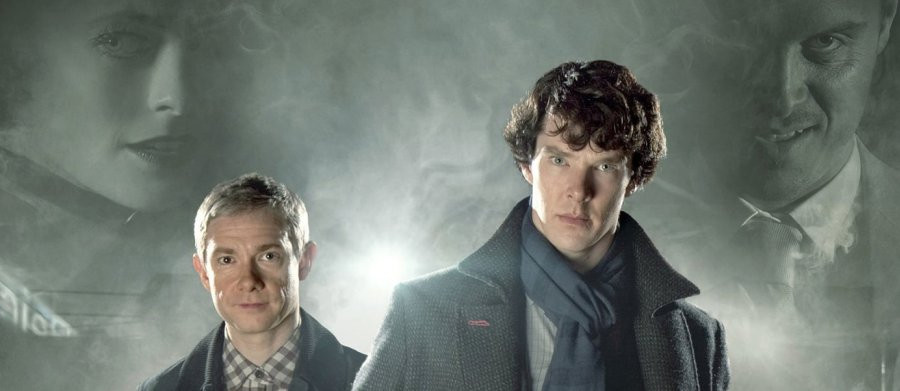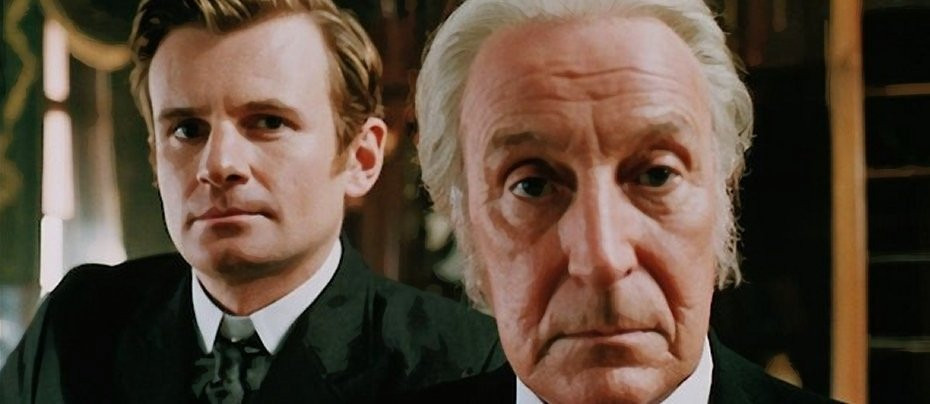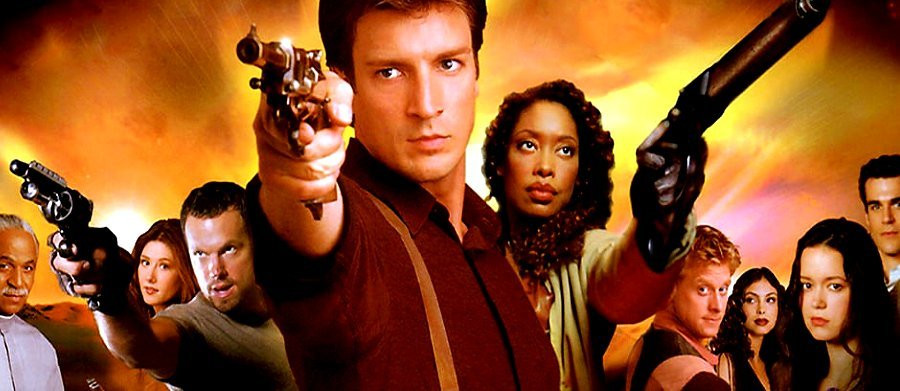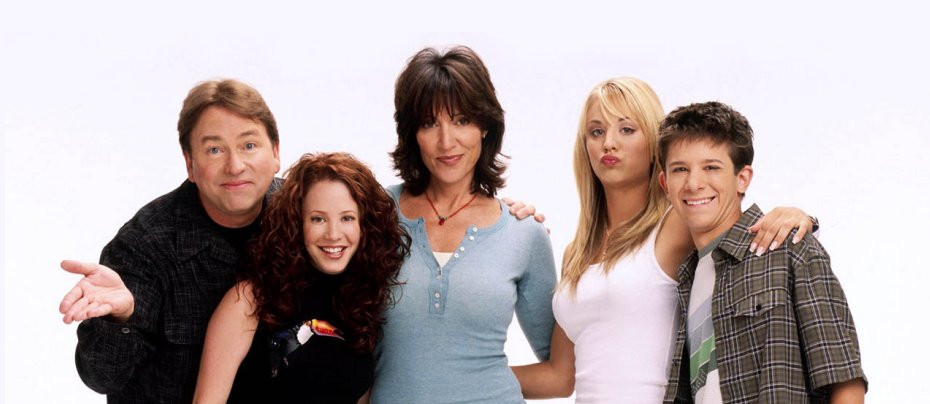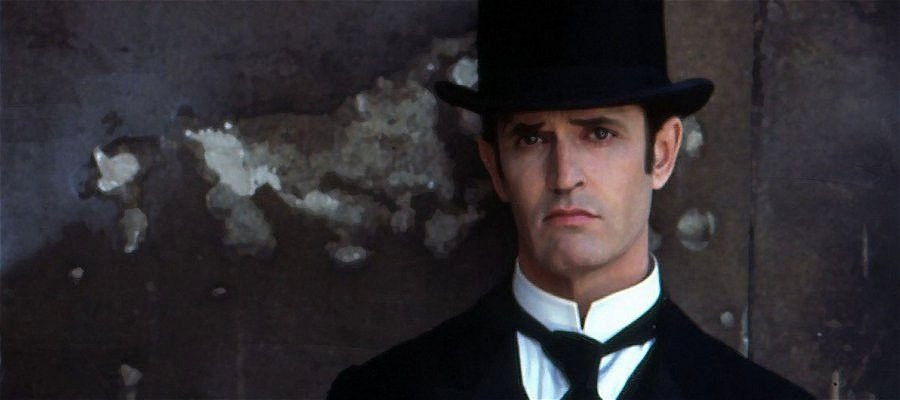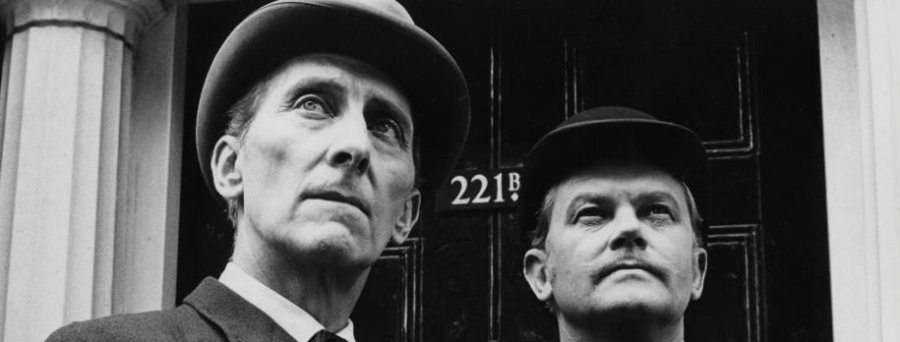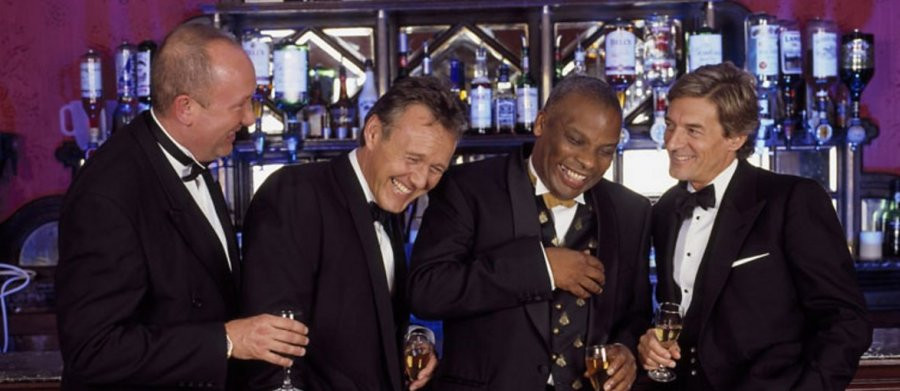
Hound of the Baskervilles
2002 - United Kingdom26 December 2002 saw the broadcast of the BBC's first television adaptation of Sir Arthur Conan Doyle's The Hound of The Baskervilles since a 1982 version starring Tom Baker and Terence Rigby, which had been produced for the old Sunday Classics Serials spot. The intervening years, of course, witnessed a lengthy run for what became for many the definitive screen version of Sherlock Holmes - the Granada series which starred the late Jeremy Brett. So successful, so respected was the Granada series that it was always going to be a thankless task following it, particularly less than a decade later.
Fortunately, Jeremy Brett did not kill off Sherlock Holmes - his definitive portrayal might easily have scared everyone away from trying to match it. Here we have a new name to add to the long list of actors who have played Sherlock Holmes - Richard Roxburgh. Roxburgh, 40 at the time, had a career which took in films such as Moulin Rouge and Mission Impossible II. But his Sherlock Holmes will have been little recognisable to the majority of the viewers who tuned in to watch.
The obvious cliched image of pipe and deerstalker was dispensed with, presumably in an effort to mark this production as a thoughtful, considered, original treatment of the character.
However, whereas many previous Sherlocks - Brett and Baker amongst them - had also made attempts to get away from the deerstalker image, they remained faithful to the character as written by Doyle. And even if it was never categorically stated that Holmes had a long curly pipe, there's no getting away from the fact that he was most definitely a pipe smoker. His famous remark about a 'three pipe problem' springs readily to mind. So where, may I ask, is Roxburgh's pipe? Holmes smoking cigarettes just isn't the same. But this takes us to the root of the problem with Roxburgh's portrayal and, indeed, the production as a whole - it's one thing to cut out a lot of the clichés that have been built up around Holmes over the last century, but it's quite another to remove many of the specific characteristics that Doyle put in in the first place. Roxburgh's Holmes is not one who lounges around his consulting room in a dressing gown and nor is he the sort of character you can imagine touching a musical instrument - even though Watson does state that Holmes plays the violin. This Holmes is intelligent but there is little to like about him.
He seems to care little about the people around him, there is never any real feeling that he is acting under his own moral sense of justice. The original line where he suggests that Dr Mortimer's tale of the legend of the hound of the Baskervilles is a fairy story is delivered here quite rudely. Holmes also resorts to thuggery to extract information from a cab driver. Fair enough, he was provoked to a degree, but surely a hero only resorts to violence when he has no alternative - Holmes does not even try to reason with the man first.
Then there is the drug taking. Yes, this was an aspect of the character that Doyle himself included, but there was reasoning behind it. The original Holmes was a man so intelligent that he finds everyday life quite boring and gets depressed as a result. Drugs and the puzzles presented by unusual crimes are the only things that stimulate him, so within that context things make perfect sense. Here, however, we see Holmes injecting himself a couple of times during the story with no other reference and the overall effect is one of sensationalism rather than being a natural part of his character.
There is nothing eccentric about this Sherlock Holmes, nothing that sets him aside as being remarkable other than him always coming up with the answers. Unfortunately, we don't even see him using his great powers of observation for anything other than solving the case before him. There’s a moment at the start of the story when he knows what Watson is up to because he's seen his reflection in the silver teapot. It's a tiny moment but so important in establishing a character. Roxburgh is playing a character here but it isn't Sherlock Holmes in any sense, whatever name he might use.
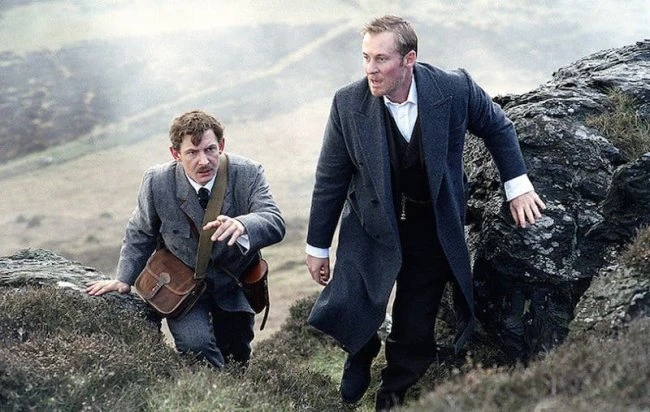
Holmes may come off badly but Watson fares far worse. I completely failed to recognise this as the character Doyle created. I always understood that Watson was a gentleman, one who has great respect for Holmes, and above all is a medical man devoted more to saving lives than taking them. In this production Watson, played by Ian Hart, spends a fair amount of time brandishing a firearm and, at the climax, deliberately shoots the villain dead. Again how can we respect a character who so readily takes a life? Apart from the fact that it is completely at odds with him being a man of medicine, and even accepting that Holmes' life was in danger, would Watson not at least have tried to reason, fired a warning shot or, if all else failed, simply wounded the man? He's not just mean with a gun in his hand either, but is also prepared to use his fists. Admittedly he was upset at the time after finding a woman murdered, but how many other Watsons ever burst into a room and initiated violence as this one does when he attacks Stapleton, who was already at gunpoint and handcuffed.
Watson, sadly, is pretty unlikeable throughout the piece. There is no warmth about him at all - you could never imagine this man writing fondly of his adventures with Holmes as the real Watson did. I can't recall Watson ever smiling once and the relationship with Holmes is so frosty you wonder how on earth these two gentlemen (if that's the word to describe them) could ever live together or how Watson would readily agree to obey Holmes' instructions. Nor are we told how Watson is even able to - Holmes asks him to go and stay with Sir Henry at Baskerville Hall for an indefinite time and no attempt is made within the narrative to explain how Watson is at liberty to do this. Doesn't he have a day job that he needs to attend? Because unlike some Watsons he's well below retirement age!
In fact, it must be noted that Watson is clearly at the peak of his physical prowess, as demonstrated in the finale. Waiting for the Hound to appear (more of that later), Watson runs after it (with Holmes), shooting it just as it savages Sir Henry. Watson then single-handedly carries the wounded Sir Henry all the way back to Baskerville Hall where, being the medical man he is, he leaves the gravely wounded man so that he can then run back to Stapleton's house to rejoin Holmes. Once he gets there, he begins a frantic search for Miss Stapleton which results in him finding her dead, so he then engages in the aforementioned fisticuffs with Stapleton and gets himself shot. Stapleton flees and Holmes races after him, only to fall in the mire. Fortunately for Holmes, the superhuman Watson still has enough breath left to come racing after him and - despite carrying a gunshot wound in one arm - is able to pull the detective free. After he's shot Stapleton dead of course. Well, I ask you, does this honestly sound like the sort of behaviour we would expect from Dr John H Watson???
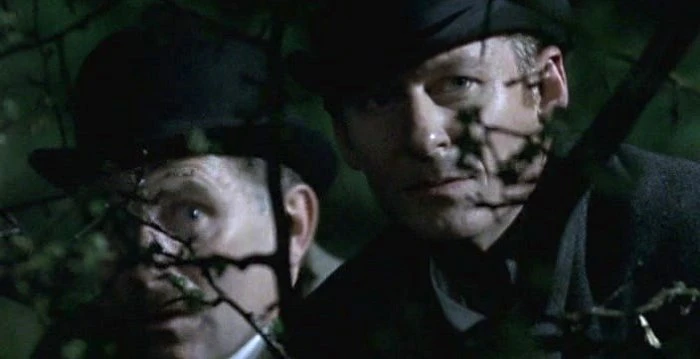
It's an ominous sign when a production can't even get Holmes and Watson right. Even when Universal took it upon themselves to transplant Holmes into the then present day of the 1940s, to give him Nazis to fight and to turn Watson into a comic foil, they still remained somehow true to Doyle's blueprint. That blueprint here seems to have gone out of the window. Fortunately, once Holmes and Watson are taken out of the equation, this production fares rather better although it is still rather flawed and takes liberties with Doyle's original story. I got the unshakeable feeling that so much of this version was carefully crafted so as not to do things in the same manner as any of the previous screen versions of the story - no easy feat as there have been so many!
The obvious way to open the story - as so many other versions have done - would be to show Sir Charles Baskerville fleeing in terror from the hound, or, similarly, to begin with the story of how the legend began, with Hugo Baskerville meeting his grisly end. Either option would provide a great, dramatic opening to the story. However, this version dares to be different and opens with the inquest into the death of Sir Charles which then leads in to the escape of the convict who flees across the moors. This at least was an imaginative way to avoid going over old ground and is a good way of introducing the character of Doctor Mortimer before his subsequent meeting with Holmes.
As with the 1938 Basil Rathbone film version, a séance scene has been added although this one fails to embellish a spooky atmosphere as the original did. This time it's used for shock value - a fleeting glimpse of the giant hound at the window - and to provide a clue as to how Stapleton controls the hound. This is via a silent dog whistle no less! Would such an instrument, blown for a split-second in a room, be heard outside of the house in heavy rain and strong winds? Obviously it can!
And so we come to the hound itself, an element so many of the previous screen versions have struggled with. It is glimpsed in flashes earlier in the story but of course is only properly seen - as most of Holmes' foes usually are - in the last stages of the story. I was quite encouraged by the sight of a huge, powerful, snarling savage dog chasing Sir Henry Baskerville and although it didn't have a ghostly glow, I thought perhaps this was going to be one of the best realisations of the Hound yet seen on the screen. Unfortunately, there are a couple of shots which show the dog too clearly - and these show it up as a cartoon-like computer animation.
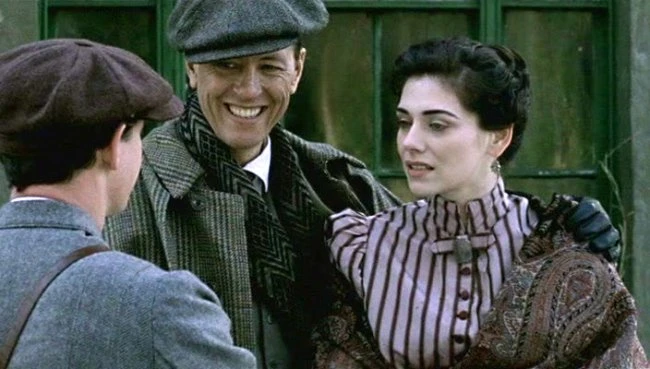
The portrayals of Holmes and Watson were rather unlikeable, and Sir Henry (Matt Day) seemed rather bland and uninteresting, a non-entity that gets dragged along by the plot. The Barrymore's could have been imbued with a far more sinister or shifty presence. Again they are not the most interesting of characters and I wasn't made to feel sorry for them when the truth came out. John Nettles at least made enough of Dr Mortimer to convince me that he wasn't just playing Bergerac with whiskers, but the real stars of the piece were the Stapletons, played by Richard E Grant and Neve McIntosh.
Grant really makes his character come alive and is interesting to watch in every scene in which he appears. Unfortunately, the programme actually suffers from this - because it becomes obvious straight away that he's got to be the villain (or an outrageous red herring). And it almost seems as though Grant is overacting at times because of the dull performances all around him. If the rest of the cast could have reached his level, then this production would really glow from a rich mixture of characterisations. Neve McIntosh manages to give her character enough charm and fragility to convince us that she is playing a true Victorian - rather than a modern-day character dressed up in Victorian garb.
Which inevitably brings me back to Holmes and Watson. They're not Holmes and Watson at all, not even an interpretation of them. They're a modern detective duo - Regan and Carter, Dalziel and Pascoe, Starsky and Hutch, Morse and Lewis - who just happen to be called Holmes and Watson and who just happen to be in a Victorian setting. If you get your head around that and become comfortable with the idea, then you might actually like this treatment of the story. But if you'd prefer a creepy version then check out Basil Rathbone's; if you'd prefer a nice action version, check out Peter Cushing's Hammer film; and if you'd prefer something close to what Doyle had in mind, then Jeremy Brett is your man. Despite some nice ideas, some nice visuals and one or two good performances, the 2002 version ultimately fails to measure up to any of them.
Seen this show? How do you rate it?
Seen this show? How do you rate it?
Published on May 28th, 2019. Written by David P May for Television Heaven.


